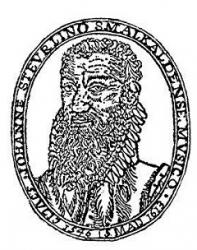Planning worship?
Check out our sister site, ZeteoSearch.org,
for 20+ additional resources related to your search.
- |
User Links
Person Results
Sylvia G. Dunstan
1955 - 1993 Person Name: Sylvia Dunstan Author of "You Walk Along Our Shoreline" in Celebrating Grace Hymnal After a brief, arduous battle with liver cancer, Canadian Sylvia Dunstan died in 1993 at the age of 38. For thirteen years, Dunstan had served the United Church of Canada as a parish minister and prison chaplain. She is remembered by those who knew her for her passion for those in need, her gift of writing, and her love of liturgy.
Sing! A New Creation
Sylvia G. Dunstan
Samuel Sebastian Wesley

1810 - 1876 Person Name: Samuel S. Wesley Composer of "AURELIA" in Celebrating Grace Hymnal Samuel Sebastian Wesley (b. London, England, 1810; d. Gloucester, England, 1876) was an English organist and composer. The grandson of Charles Wesley, he was born in London, and sang in the choir of the Chapel Royal as a boy. He learned composition and organ from his father, Samuel, completed a doctorate in music at Oxford, and composed for piano, organ, and choir. He was organist at Hereford Cathedral (1832-1835), Exeter Cathedral (1835-1842), Leeds Parish Church (1842-1849), Winchester Cathedral (1849-1865), and Gloucester Cathedral (1865-1876). Wesley strove to improve the standards of church music and the status of church musicians; his observations and plans for reform were published as A Few Words on Cathedral Music and the Music System of the Church (1849). He was the musical editor of Charles Kemble's A Selection of Psalms and Hymns (1864) and of the Wellburn Appendix of Original Hymns and Tunes (1875) but is best known as the compiler of The European Psalmist (1872), in which some 130 of the 733 hymn tunes were written by him.
Bert Polman
Samuel Sebastian Wesley
Georgina Pando-Connolly
b. 1946 Person Name: Georgina Pando-Connolly, b. 1946 Translator of "You Walk along Our Shoreline (Caminas por la Orilla)" in Oramos Cantando = We Pray In Song
Georgina Pando-Connolly
Johann Steuerlein

1546 - 1613 Person Name: Johann Steurlein Composer of "WIE LIEBLICH IST DER MAIEN" in Glory to God Johann Steuerlein (b. Schmalkalden, Thuringia, Germany, 1546; d. Meiningen, Germany, 1613) studied law at the University of Wittenberg. From 1569 to 1589 he lived in Wasungen near Meiningen, where he served as town clerk as well as cantor and organist in the Lutheran church. From 1589 until his death he lived in Meiningen, where at various times he served as notary public, mayor, and secretary to the Elector of Saxony. A gifted poet and musician, Steurlein rhymed both the Old and New Testaments in German. A number of his hymn tunes and harmonizations were published in Geistliche Lieder (1575) and Sieben und Zwantzig Neue Geistliche Gesenge (1588).
Bert Polman
Johann Steuerlein
John L. Bell
b. 1949 Person Name: John L. Bell, 1949- Arranger of "SALLEY GARDENS" in Community of Christ Sings John Bell (b. 1949) was born in the Scottish town of Kilmarnock in Ayrshire, intending to be a music teacher when he felt the call to the ministry. But in frustration with his classes, he did volunteer work in a deprived neighborhood in London for a time and also served for two years as an associate pastor at the English Reformed Church in Amsterdam. After graduating he worked for five years as a youth pastor for the Church of Scotland, serving a large region that included about 500 churches. He then took a similar position with the Iona Community, and with his colleague Graham Maule, began to broaden the youth ministry to focus on renewal of the church’s worship. His approach soon turned to composing songs within the identifiable traditions of hymnody that began to address concerns missing from the current Scottish hymnal:
"I discovered that seldom did our hymns represent the plight of poor people to God. There was nothing that dealt with unemployment, nothing that dealt with living in a multicultural society and feeling disenfranchised. There was nothing about child abuse…,that reflected concern for the developing world, nothing that helped see ourselves as brothers and sisters to those who are suffering from poverty or persecution." [from an interview in Reformed Worship (March 1993)]
That concern not only led to writing many songs, but increasingly to introducing them internationally in many conferences, while also gathering songs from around the world. He was convener for the fourth edition of the Church of Scotland’s Church Hymnary (2005), a very different collection from the previous 1973 edition. His books, The Singing Thing and The Singing Thing Too, as well as the many collections of songs and worship resources produced by John Bell—some together with other members of the Iona Community’s “Wild Goose Resource Group,” —are available in North America from GIA Publications.
Emily Brink
John L. Bell


 My Starred Hymns
My Starred Hymns


